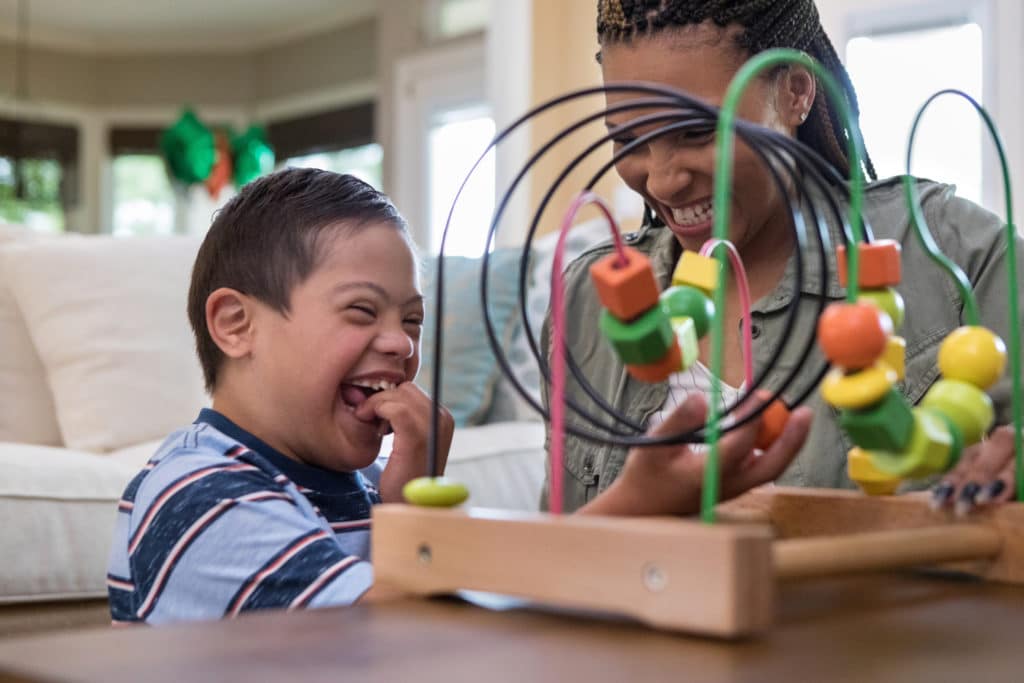Funding Keeps Those Living With Developmental Disabilities in the Home
Funding and home healthcare staffing shortages could combine to create an untenable situation for those living with developmental disabilities in the home. Many of those with disabilities have loved ones and family members who provide care, and they don’t want congregate care. That being said, many factors contribute to their ongoing needs and their loved ones’ ability to meet them. Direct Care Innovations provides business management software solutions for managed care and government agencies that serve this community. Accordingly, we’re concerned about the significant issues they face.

In-Home Healthcare Staffing Shortages
Keeping those living with developmental disabilities in the home requires skilled care. Children and growing adolescents thrive in a home environment with loved ones who care well for them, for obvious reasons. At the same time, some of the population requires skilled care in advance of what their parents or caregivers can provide. This is where in-home healthcare comes into play. However, the field struggles with staffing shortages, which the COVID-19 pandemic exacerbates. Some caregivers have waivers that allow in-home care, but they can’t find workers.
What happens when in-home healthcare workers aren’t available? Either loved ones must try to balance the demands of work and constant care, or be forced to quit their jobs. Neither of those options makes sense to those who must work.
The Infrastructure Bill
If the Senate votes to fully fund the infrastructure bill, it will address many of today’s issues. Why? The package includes $400 billion that would bolster community-based services, and more for those with developmental disabilities in the home. This community has complex needs, and meeting them while living at home with their families and communities is essential.
Many family members want to provide care for their loved ones with disabilities. However, they’re unable to do so fully. This may be due to a lack of skill, ability, or finances. Medicaid waivers in some states help. The infrastructure bill would help even more. For those who want to care directly for loved ones, and need to produce income, the bill provides a viable solution.
Even with that support, though, things sometimes happen in life. For instance, a caregiver may experience a life event that changes their own physical abilities for a time. Even a regular surgery can limit a caregiver’s capacity to fully care for their loved one with disabilities. When this happens, they need extra support from community-based services and managed care.
Independence and Community Engagement
Some of those living with developmental disabilities achieve independence, while others grow into some degree of it. Either way, people tend to experience better outcomes as members of the community. Living in institutions prevents community engagement and interaction to a large degree.
Managed care groups, Medicaid, Medicare, government agencies, and in-home care continue to evolve. Business management solutions that integrate current technology and streamline processes equip agencies and direct care staff to be more effective. The right tools support and enhance operations and administration, which frees you to focus on what’s most important: direct services. Schedule a free online demo with Direct Care Innovations to discover how we can support you navigate these challenges in all 50 states. Call (480) 571-5852 to speak to a professional today.

